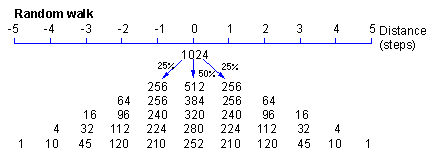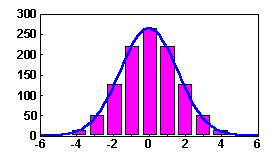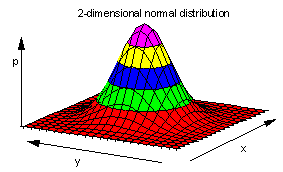12.1. Random walk
Early population studies concentrated on local population dynamics. However, spatial processes are very important in life-systems of most of the species. They may so significantly modify system behavior that local model would be unable to predict population changes.Several ecological problems cannot be addressed without analysis of organism dispersal. Examples are: spread of invading species, epidemics, etc.
Let's take the problem of pest insect control as an example. The first question is what area to treat. If this area is too small it will be immediately colonized by immigrants. Crop rotation is often used to prevent propagation of pests, but the distance between fields with the same crop in two consecutive years should be separated further than migration distance. Finally, many insect pests are sampled using traps (pheromone-baited traps or UV-traps). To determine pest density from trap catches it is important to know dispersal abilities of the insect.
The main problem: how many organisms disperse beyond a specific distance?

Random walk is simulated here assuming that 50% individuals stay at the same place, 25% move to the left, and 25% move to the right. After several time steps the distribution of organisms becomes close to the normal distribution:

 Excel spreadsheet "diffus.xls"
Excel spreadsheet "diffus.xls"
Normal (=gaussian) distribution corresponds to equation

Random walk can be defined in a 2-dimensional space. If organisms
were released at the center of coordinates (0,0), then their distribution
can be described by 2-dimensional normal distribution:

This is a 2-dimensional normal distribution:



